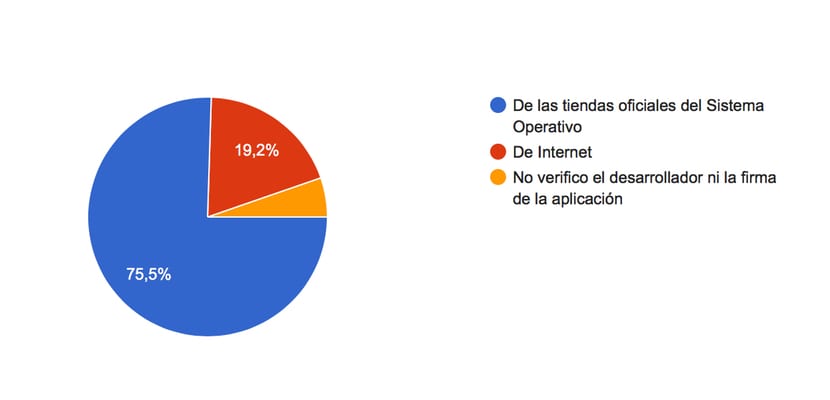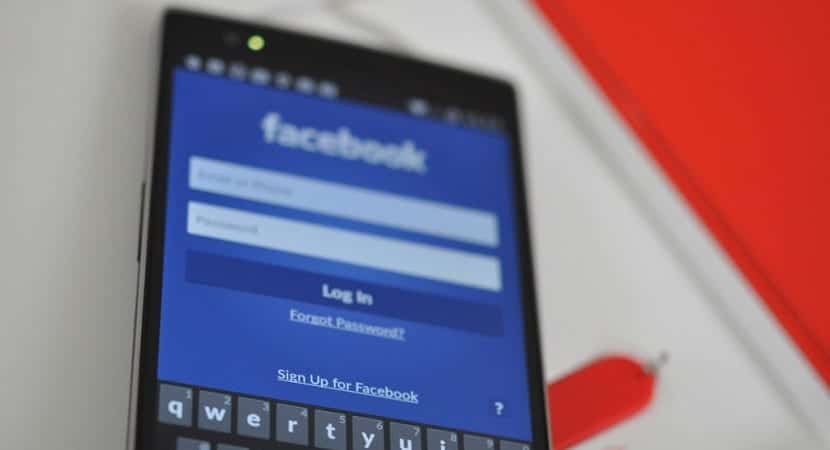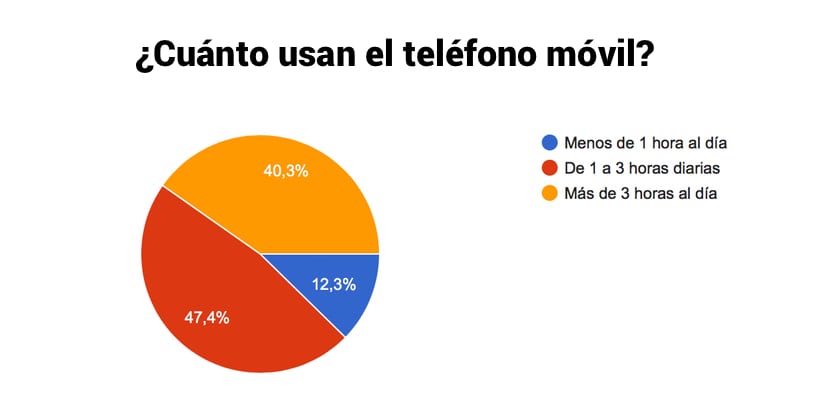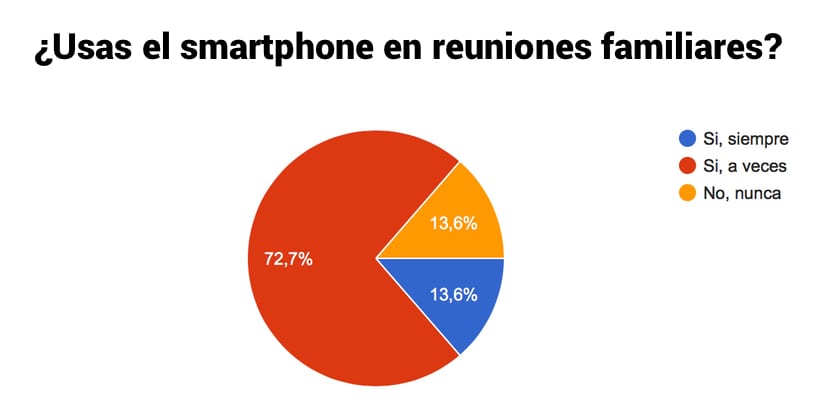
A few weeks ago we asked you to participate with us in a series of studies that we were carrying out with the intention of discovering where, technologically speaking, the adults and the elderly were. For those of us who consider ourselves millennials, children of the technological age, who have seen the transition from VHS to BluRay And as we have quickly adapted to mobile telephony and the dangers of the internet, it may seem a lot easier than it is.
However, in order to protect minors we have focused on technology and internet education for the new generations, however ... What about the elderly? This group of users who have been forced to adapt to new technologies is currently the most vulnerable to scams and data theft on the internet, and we have data to corroborate it. We are going to do a little analysis about the way in which the elderly use the internet and mobile telephony so that we know the real scope of this problem.
In short, we have realized how those who not so long ago asked us to put our mobile phone aside while we were at the table, or who accused us of being blindly involved in the «mobile games», are now precisely part of this sickness. It is not difficult to see adults totally challenged by Candy Crush, continuously passing WhatsApp chains without any meaning whatsoever, and sharing photos on Facebook in which supposedly an "amen" will save that person in need, whose photo has been around the internet since we surfed with a 56K modem flat rate.
Obviously, those who take this type of attitude with internet services are not aware of the extent to which they are taking the bait of the unscrupulous. This niche user is easily scammed by tricky buttons, applications that request access to device functions and other classic scams, catapulting scams like Operation Rikati to millions of dollars. Nevertheless, for some reason the authorities have focused on educating the MillenialsBut society has not wanted to contribute to what I call the "yayonauts."
The behavior of the elderly with mobile telephony

En Actualidad Gadget We set out to launch this study through the Google survey tool, and the result was practically what we expected to see. From now on I would like to thank all the participants for their collaboration, as well as those who spread the news through the different media to achieve the greatest possible participation. Of the almost two hundred participants, we found 61,2% of users between 35 and 45 years old, although those who interested us at the level of analysis were the between 46 and more than 76 years, which has represented almost 40%, being approximately 13% over 65 years.
The favorite applications (or at least the most used) of the respondents have been:
- WhatsApp (95%)
- Email management (69,1%)
- Facebook (56,6%)
- YouTube (44,7%)
Contrast their use of the smartphone with that of the youngest, currently Instagram is a social network in constant growth, however it represents only 26% of the use of older users, in the same way as Spotify and Twitter, making it clear that the use of this sector of users is quite different from that of millennials ... why? It is clear that they do not see attractive in certain applications or technologies. It is almost surprising how YouTube is in the Top 4 of the most used applications.
Downloading applications, a potential danger

App stores are life insurance for our privacy in many respects, however we have found that 25% of users tend to download third-party applications.
It is quite evident that the fear of providing means of payment in the app stores directly evokes them a more dangerous practice if possible, that of dubious applications, the main hook for hundreds of millions of infected phones. What I mean by this? That this type of user is directly exposed, causing serious damage not only to their private data, but to the entire network of their contacts. This is the real key to the proliferation of a huge number of malicious applications whose main hunting sector is this type of user. It is more than evident that we have not educated these also initiates in the technology in this area.
Truth and lies on the internet ... can you tell the difference?

It is very clear, to the classic 500-euro shopping cards in Mercadona if you like, to the «ZARA» and «Primark» raffles, which in the eyes of a millennial is a fairly simple way of capturing data, but that ends on our wall on a recurring basis thanks to this niche of users.
To say that they are to blame would not be at all logical, the millennial user has grown up with this type of advertising and tricky hook, trial and error, however, these users of the time where A picture is worth a thousand words They are unaccustomed to salt treatment of such fake content. One more time, it is difficult to find government campaigns that support education against this type of practice.
But everything becomes much more serious in the following data, of those who usually share this type of offers, 29,7% have confessed that they never use means of verifying the content they see on the internet. But… don't you use them or don't know what these content verification methods are? It's going to be difficult to explain to an endearing "yayonaut" what an HTTPS connection is and why it should be taken into account.
Now they do use the smartphone, and they use it a lot
«Child, stop using the phone at the table ...», It is difficult to find a person under 25 who has never heard that hateful phrase. Oh if we had known at the time what our elders would become. Almost 40% of those surveyed have confessed to using their mobile phone for more than 3 hours a day, yes, the autonomy of the devices is an endemic evil of the smartphone era, and you know why. Not only that, but 86,4% of those surveyed stated that they use the mobile phone at family gatherings, many of them "always".

Education in terms of mobile telephony has changed quite a bit. By last, When quantifying the importance of mobile telephony and the internet in their lives, we proposed a scale of value, the data speaks for itself. Users have definitely made mobile telephony and the internet almost a way of life.
There is no longer any doubt that Yayonauts They have a total awareness of use, not only that, but they use the mobile phone and the internet connection as much or more than Millennials, but ... why are they treated differently then? We have drawn a thick veil on the protection and education of the elderly, and I say: If they in their day educated us with other kinds of things unknown to us ... why don't we educate them now?. It is a question that probably will not get an answer, however, if this study and analysis has served to make readers aware of the dangers to which the elderly are exposed on the internet, I will be satisfied.

It is clear that government establishments have forgotten this sector, which coincidentally is the bulk of the population pyramid in Spain. It is not worth saying that it is too late to learn, as we have seen they defend themselves quite well with Facebook, YouTube and other applications, being totally self-taught. Age will never be a barrier in technology, it is us, the youngest and public institutions, who have allowed the proliferation of a generation of technological illiterates with a difficult solution. Of course, there are options such as mobile phones for the elderly that always make it easier to use the phone for elderly people who do not get along well with technology or whose senses such as sight are beginning to fail.
Meanwhile @Policia and the media are rushing to talk about Operation Rikati, when the damage is done, but we will not see anyone establish an internet education plan for seniors or create platforms for precautionary measures. In short, it is quite clear that the sector over 45 is an easy target on the Internet, a type of extremely exposed user who is not under anyone's protective mantle, almost a taboo topic that we wanted to analyze in Actualidad Gadget to know to what extent it was an intuition or a reality. In fact, the results of the study have only served to give density to an obvious feeling.
The nickname "yayonaut" bothers me a lot, even though I am a "grandfather" of 3 grandchildren and I move better on the Internet than it seems, despite being self-taught and refusing to be left behind in this insanity of little digestible speed of It seems to me that the fact of requiring my grandchildren to leave their cell phones while we eat or at any other family gathering is not about old faces, but about education and good habits ... almost all of them are lost. I agree with you that the oldest are the great forgotten of almost everything, less to take care of grandchildren or to spend money not only on the DGT or the Treasury, but on those grandchildren and others ... It is not easy for many people to digest the hundreds of Anglicisms and other strange words and the convoluted management from many complex programs or apps to advanced recipients. Thank you
I'm sorry if the term Yayonauta bothers you (let me introduce you to it), but I don't like the "millennial" either because of the connotations it sometimes has.
I just wanted to bring out the current situation, thank you very much for reading it, and especially for understanding it so well.
A abrazo.